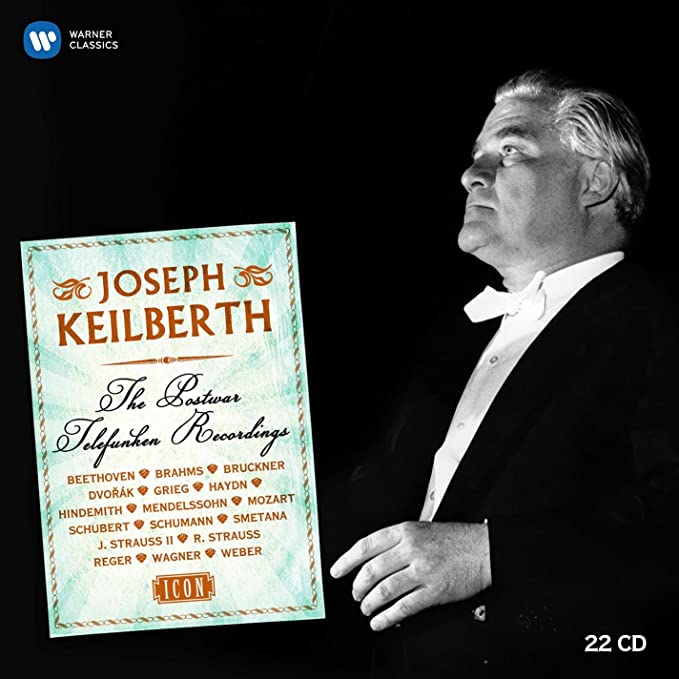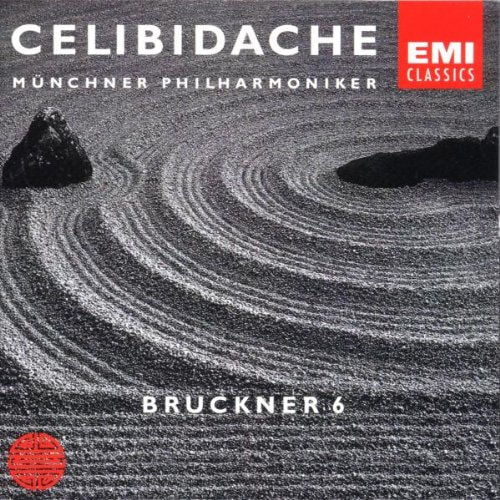|
The symphony as the embodiment of everything in life versus the symphony as a cartoonish representation of what is supposed to be grand, sanguine and awe-inspiring. The contrast between those two different kind of ways a piece of music can be percieved was palpable, almost beyond the point of salvation, when I listened to Bruckner's Sixth Symphony in performances by Joseph Keilberth and Sergiu Celibidache. It had been a while since a listening experience provoked such a strong reaction. I decided to not mince any words and write down what was on my mind. Over the years while listening to Wagner, a rule of thumb of sorts occurred to me that also can be applied to Bruckner. Don't play it too slowly because the music becomes, all too quick, a dragging procession in which the pathos rings hollow. For performers and interpreters it’s pivotal do not narrow the potential of a score to the flat flavours of one's own mind. Essential is to let the music speak for itself, as far as necessary and possible. (So much for the contemplations of an engaged listener.) This morning, over a cup of coffee and the morning paper, I listened to two versions of Anton Bruckner's Sixth Symphony, one of my favourite symphonies by the Austrian composer and organist. The first one conducted by Joseph Keilberth. A renowned opera conductor who was a familiar face in Bayreuth in the 1950s. His 1955 Bayreuther Ring cycle is regarded as benchmark and he is considered, not in the least because of that 1955-Ring, the first stereo recording of that work, as a Wagnerian of repute. It is not surprising that Bruckner also suited him well. His Bruckner recordings are a lot fewer in number, but the quality is no less. Die Sechste ist die Keckste Right from the start of the first movement, it becomes clear why Keilberth's performance with the Berliner Philharmoniker was for years the benchmark recording of Bruckner's Sixth. Under Keilberth's baton, Bruckner really comes to life. Under Keilberth, Bruckner is majestic and grandiose but also virile (!), fresh-faced, full of color and funny. The metaphor often brought up in connection with Bruckner, in which his symphonies are portrayed as cathedrals of sound, is hopelessly inadequate with Keilberth and that is one of the greatest compliments I can think of for this recording. Keilberth understands that maximum eloquence is not the same as trying to make a maximum impression. The difference with Celibidache's recording with the Münchner Philharmoniker that I listened to afterwards could not be bigger. Where Keilberth brings Bruckner's score to life, Sergiu Celibidache reduces it to a petty distortion of ideas about a grand and compelling life not yet been tested by reality. Celibidache's reading brings together two opposites in the worst possible way: adolescent dreams of grandeur in an over-analyzed approach. With Celibidache it is as if the music is no longer trusted to stand on its own feet and is considered only to find its way on the tight leash of a conductor. (That is the big difference with, for example, Knappertsbusch who is no speed demon either but whose Bruckner I very much enjoy. Knap at least puts his trust in the music and the magic of the moment.) The devout images that Celi conjures up may not seem out-of-sync with the devout Bruckner, the lifelong virgin with his childlike clumsiness towards women, but it does the Austrian in his most frivolous symphony a serious disservice ("Die Sechste ist die Keckste", according to Bruckner himself). With a sparkling rendition, Keilberth provides Bruckner with the splendour he so often lacked in real life. Keilberth allows Bruckner to transcend his limitations as a human being through his art. Celibidache denies Bruckner this testimony of true greatness. He denies Bruckner the merites of his artistry with which the composer tried to pull himself out of the swamp of his own shortcomings. Anton's fate is in cruel hands of performers such as Celibidache, who here shows himself to be the greatest conceivable opposite to the man whom he was to succeed in 1954 as chief conductor of the Berliner Philharmoniker, Wilhelm Fürtwangler (perhaps the most exhilarating and demon-driven Bruckner conductor of all time - after Furtwangler's death, the vacant position of chief conductor of the Berliner went to Herbert van Karajan; it left Celibidache with a grudge against Karajan and about every other conductor other than himself but that's another story). The grandeur Celibidache seeks is ludicrous; his Bruckner is slow and boring. His Münchner Orchestra is well versed in this repertoire but Celi makes them sound like a carnival band on Ash Wednesday. Like an ensemble that has lost all energy and is lurching along in an exercise on autopilot. A big disappointment. What earns this man his title of Brucknerian not only remains well hidden here, the accolades can be stowed away in the cupboard with the deepest drawers, this performance also fails to explore the terrain where music should ultimately have the last word. Where Keilberth grants Bruckner a place in the fullness of life with an execution that is complety self-evident, Celibidache directs him to a piece of wasteland where in vain he suspects the foundations of a cathedral. To deny Bruckner life by endowing him with a mind-numbing performance of his most uplifting symphony goes beyond the defect of a performance in which perfunctory premises lead to unsatisfactory ends. It is more severe. It can be, to remain in the spirit of the God-abiding Austrian composer, considered a sin. - Wouter de Moor
0 Comments
|
Archives
September 2023
Name/dropping
All
|



 RSS Feed
RSS Feed